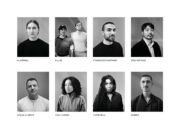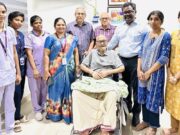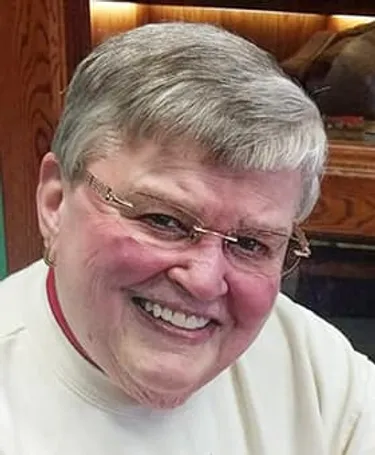By Jean Rommes, as told to Kendall Morgan
I knew in 1985 that I probably had chronic obstructive pulmonary disease (COPD). I first came across the condition in an article, looked it up, and discovered I had all the classic symptoms. But I didn’t do anything about it until 2000, when I finally went to my primary care doctor about it.
I always knew I was more short of breath than other people. A spirometry test, which measures how much you can breathe in and out, showed my lungs were only working at 37%. I had a definitive diagnosis of COPD, which was very unusual at the time, especially in a small community like mine in Iowa.
There wasn’t a whole lot to choose from as far as treatments go. My doctor prescribed inhalers and sent me on my way. They helped, but to be perfectly honest, it was like a gut punch. I thought, “Well, I guess that’s it. Let nature take its course.” I didn’t really see good options for myself. I let things go for a couple of years. I gained weight. I barely moved. At work, if I had to walk somewhere, I’d make three stops on the way there and four on the way back to catch my breath. I suspect I was at least mildly clinically depressed.
All that came to a screeching halt one Sunday in 2003. I got in the shower and had to get out before I was finished because I couldn’t breathe. The humidity in the shower and the physical exertion required to take a shower was more than I could manage. I recovered and got up for work the next morning.
But instead of going to work, I headed straight to the doctor. There were a few inches of snow and ice on the ground. When I finally made it into the clinic, I was huffing and puffing. The nurses took one look at me and went for a wheelchair. My doctor admitted me to the hospital. I was in respiratory failure. Not being able to breathe was pretty scary.
The doctor said if I could lose some weight, my problems would get a lot better but they wouldn’t go away. I was sure he didn’t think I could or would. That made me angry and frightened, which are two powerful motivators. For the first time in my life, I thought, “We’re going to do something about this.”
I was ready to take charge of my health and explore my options. I started a really aggressive combination of diet and exercise. And when I saw a notice in the Sunday paper for COPD clinical trials at the University of Iowa, I decided to pursue it. They were testing less invasive ways to close off more damaged areas of the lungs that trap air in COPD. I’d heard a little bit about it and knew what the basic idea was. They were essentially trying to accomplish lung volume reduction surgery (LVRS) without cutting you. They’d use bronchoscopy to go into the lungs and put tiny valves in. The goal was to block the useless portions of the lungs and divert air to areas that were more functional so people could breathe better.
I made an appointment and went through various testing to see if I’d be eligible for the trial. I wasn’t, but I still learned so much about COPD by going through the process. The people running the trial were so willing to talk and answer questions. They’ve called me back a couple of times. I still haven’t been in a trial for any new medications, but I have enrolled in other clinical studies where researchers are trying to learn more about COPD. One study looked at the relationship of bone density to COPD. Another is studying the effects of COPD on the brain.
I was willing to consider a clinical trial for multiple reasons. For one, I was fairly young and still quite active. The chance something might help and maybe not needing oxygen just to exercise was appealing. I also liked the idea of participating in something that might have a lasting effect on somebody else down the road. I thought it was worth it to give this a try and my husband and kids agreed. There’s still so much we don’t know about COPD. Anything we can learn must be a good thing.
I’ve gotten really involved in advocating for and educating others about COPD. For the last few years, I’ve served as a patient investigator for a clinical trial comparing two different medications for treating COPD. I helped with the design of the study, adding insight from the patient point of view to try to ensure that we made things easy and understandable for people. I helped design and prepare informational materials and consent forms. I’ve been in on all the discussions about how patients get identified. I’ve been involved in pretty much everything.
There are treatments for COPD now that weren’t there when I found out that I had it. It’s research that’s made that possible. The best way to explore your options — including trials — is to see a pulmonologist, especially if you can find one that’s involved in research. You can find good information online from the COPD Foundation, American Lung Association, and other organizations, too. They have groups you can get involved with, and that’s a good way to find people who know a lot about COPD.
Learning how to live well with COPD is possible. Many people don’t know about the opportunities available to them. It’s hard when you get diagnosed to find the energy and determination, but with the right team and information, it’s possible to turn that around.




































